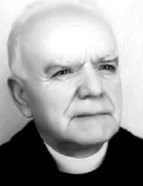

The early years of Domingos Maurício's education were shaped by the persecutory actions of the First Republic against the Catholic Church, which included the expulsion of the Jesuits. The young student's exile, his eventual return at the establishment of the Estado Novo, and Portugal's immunity from the horrors of World War II were circumstances that undoubtedly shaped the man he was: a Catholic deeply loyal to the Pope and to Church doctrine, expressed through Tradition and renewed in the Encyclicals; a priest who embraced his vocation within the unique context of the Jesuit order; and a Portuguese citizen rooted in a Catholic, "conservative", and overseas-oriented Portugal. His ample active life enables us to observe these three aspects (always intertwined with his role as a historian) and to assess the varying degrees of impact each had over the past half-century, a period marked by significant change in the world, in Portugal, and within the Church. Fortunately for us, the numerous articles he published (particularly in Brotéria) provide insight into his political orientation in the broadest sense of the term.
From 1937 onwards, Brotéria contains testimonies reflecting the search for a Catholic identity intertwined with the concept of a nationalist and Catholic Portugal, yet very far from the agenda of the Action Française (1939). For Domingos Maurício, Catholicism had tangible political implications, including the promotion of political Catholicism (1943) and the critique of progressive Christianity (1950), which he believed should be conveyed through the Catholic press (1943). The Portugal of his era closely aligns with the vision outlined in the ideology of the Congresso do Mundo Português [Congress of the Portuguese World] (1940), which is also reflected in the creation of the Museu de Arte Popular [Museum of Popular Art] (1948). Portugal's lack of direct involvement in World War II highlighted the alignment of Domingos Maurício's ideals with those of the Estado Novo leaders. Cf. article on Portugal's stance during the conflict ( B., 1941) and the "tribute of national gratitude" expressed in 1945. In 1938, he cautioned about the threat of communism in the "colonies of Africa", and by 1949, the issue of overseas territories had emerged as a prominent theme in his work. In 1960, his work reveals that Domingos Maurício’s concept of overseas territories is closely tied to the history of the discoveries and the appreciation of the integration of the Portuguese in African lands. In 1961, the conflict between the independence movements in Portuguese Africa started. He wrote in the first issue of Brotéria in 1962, “Pátria em luto? Pátria em glória”. [Fatherland in mourning? Fatherland in glory]. Several works from 1963 result from the commentary on the encyclical Pacem in Terris, without ever questioning the inevitability and absolute necessity of the war in Africa (for Portugal and the "Christian West") .
This work is financed by national funds through FCT - Foundation for Science and Technology, I.P, in the scope of the projects UIDB/04311/2020 and UIDP/04311/2020.
